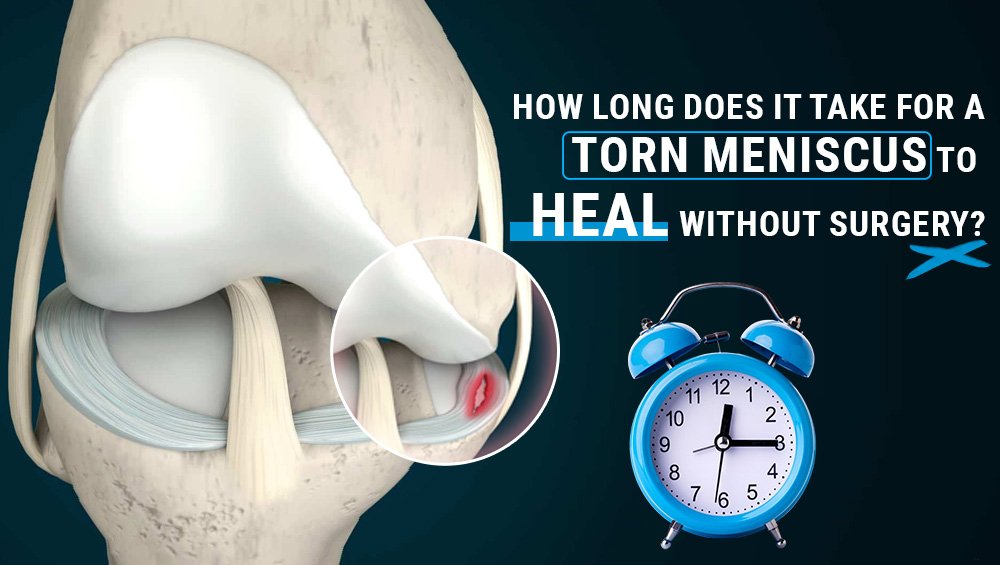Meniscus tears can be a common injury especially for those who engage in intense sports or heavy work duties. You may have been wondering how long it takes for the meniscus to heal? If you recently had a medical diagnosis that indicated a tear.
This blog will cover everything you need to know about meniscus tears. We'll discuss the natural healing process, the recovery timelines for different grades and when surgery may be required.
What Is a Torn Meniscus?
The meniscus is a C-shaped cartilage plug on your knee. It functions as the cushion between your shinbone and thigh bone. Its function is to cushion shocks, stabilize your knee and allow for fluid motion.
Meniscus tears occur when the cartilage has been damaged, usually because:
- Sudden twisting of the knee
- Quick stops during sports
- Heavy lifting or strenuous activities
Symptoms of Meniscus Tears:
- Knee pain is common, especially when turning or twisting
- Swelling around the joint
- The knee is stiff or difficult to move
- A locking or popping sensation
The recovery time can be affected by the seriousness and nature of the tear.
Types of Meniscus Tears
Meniscus tears are usually graded based on severity:
Grade 1: Minor tear or small fraying
Grade 2: Moderate tear without severe damage
Grade 3: Serious tear which could require surgery
The seriousness of the tear determines the treatment options and recovery timeline.
How Long Does a Torn Meniscus Take to Heal Naturally?
The time it takes to heal the meniscus tear is dependent on the kind of injury, its location and level of your exercise. Usually:
Grade 1 tears: Typically they heal within 2 to 4 weeks supported by rest and physical therapy as well as the home-based treatment.
Grade 2 tears: can be 4-6 weeks long or even longer.
Grade 3 tears: are most likely to require surgery and more longer healing time.
The outer part of the meniscus heals faster because the blood flow in that area is higher. However tears on the inner side are harder to heal.
How to Heal a Torn Meniscus Naturally
Most individuals like non-surgical methods, particularly for minor tears. Here's what you can try:
1. Rest and Avoid Strain
Take a break for your knee. Steer clear of twisting, running or heavy lifting. Mild activities such as walking on flat ground are generally fine.
2. Ice Therapy
Use cold packs over the knee for 15 minutes, alternating them two times during the day. This will reduce swelling and pain.
3. Compression and Elevation
A leg brace or compression bandage can help balance the knee. Letting your leg be elevated can also help reduce swelling.
4. Physical Therapy and Exercises
Simple exercises to strengthen the muscles surrounding your knee can help you feel more stable. Some examples are:
- Straight leg raises
- Hamstring stretches
- Quadriceps exercises
5. Anti-Inflammatory Care
The over the counter painkillers can relieve inflammation and pain however, you must consult with your physician before you take them. Utilizing these strategies Meniscus tears of grade 1 recovery usually takes about a month, with many people returning to their regular activities slowly.
When Surgery Becomes Necessary
Sometimes, natural healing isn’t enough. Arthroscopic Meniscus Reconstruction is a minimally invasive surgery in which the torn cartilage is repaired with small instruments. The surgery may be recommended when:
- The tear is severe (grade 3)
- Symptoms persist beyond 6–8 weeks
- The knee locks or swells continuously
- Even after surgery rehabilitation is necessary but the success rate is generally high.
Tips for Faster Meniscus Recovery
- A healthy weight can help reduce knee strain.
- Avoid sudden movements and twisting of the knee
- Do not stop your physical therapy exercises
- Listen to your body and avoid overexertion.
Preventing Future Meniscus Injuries
You can prevent future injuries after your knee heals by:
- Strengthening calf and thigh muscles
- Right shoes are essential for sports or exercise.
- Warming Up First for Physical Activity
- Avoid high-risk knee twisting movements
Conclusion
Meniscus tears can be difficult to recover from, but with the right care and attention most minor tears will heal on their own within a couple of weeks. Rest, ice treatment and gentle exercise can speed up the healing. Arthroscopic Meniscus repair may be required in severe cases to restore knee function.
For the best results and expert advice you should seek out Dr. Yugal. Having more than 14 years of experience as the best orthopedic surgeon in Gurgaon. His experience ensures a proper diagnosis, successful treatments and secure rehab, allowing you to return to a healthy and active lifestyle.


